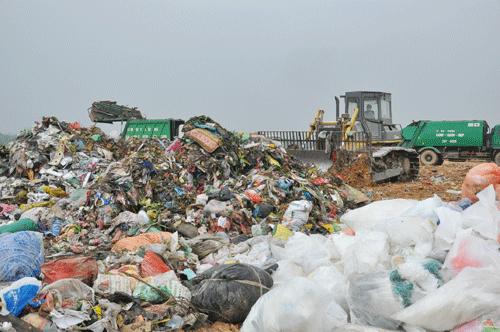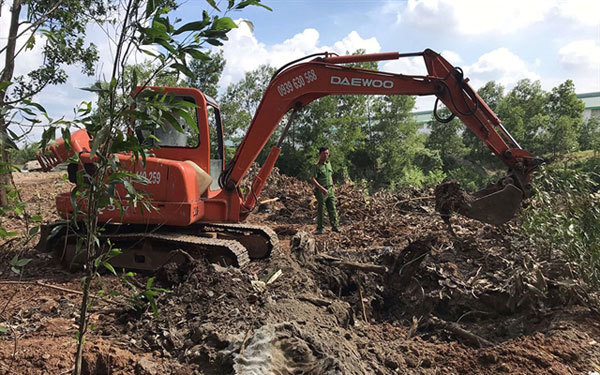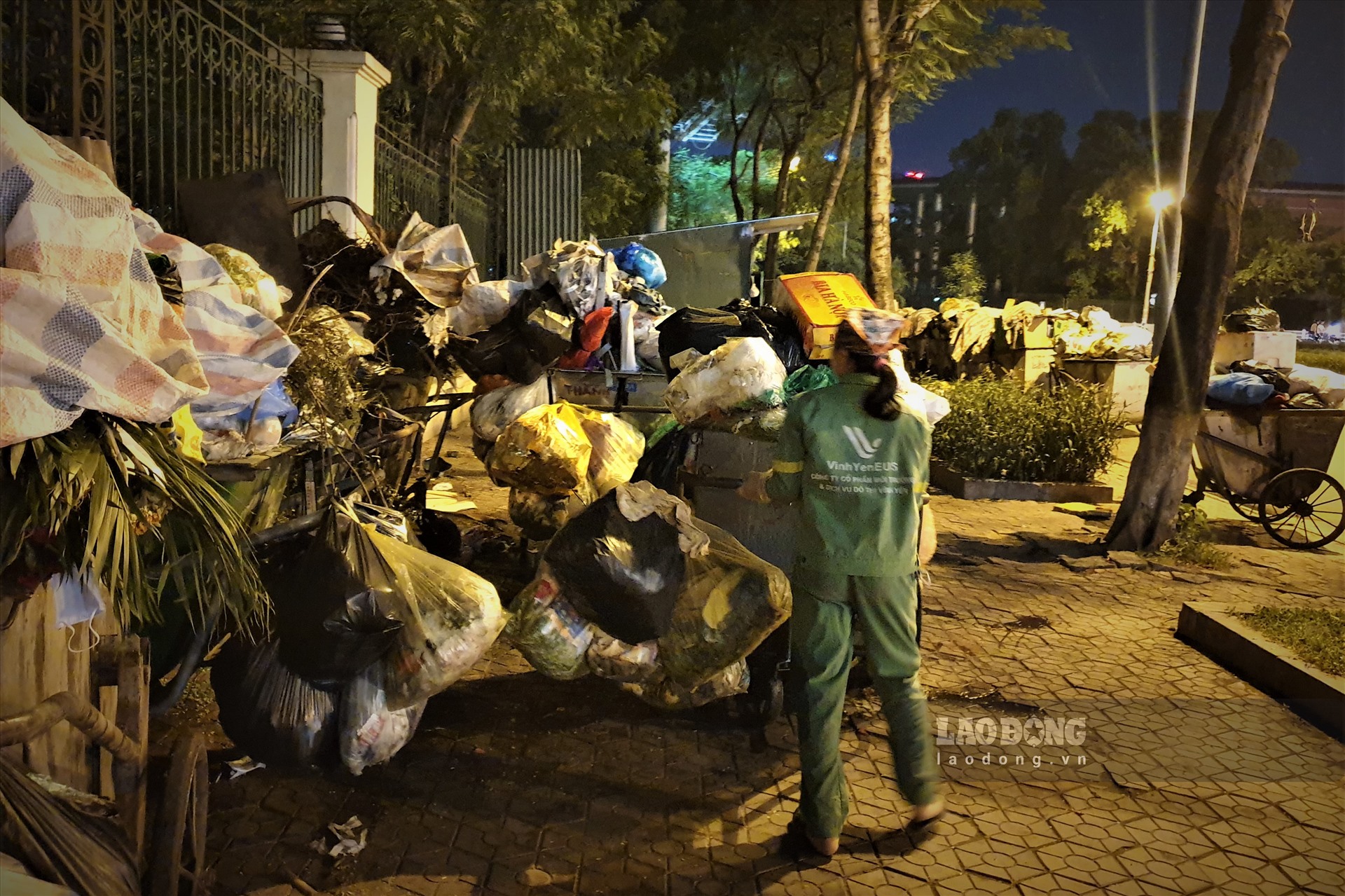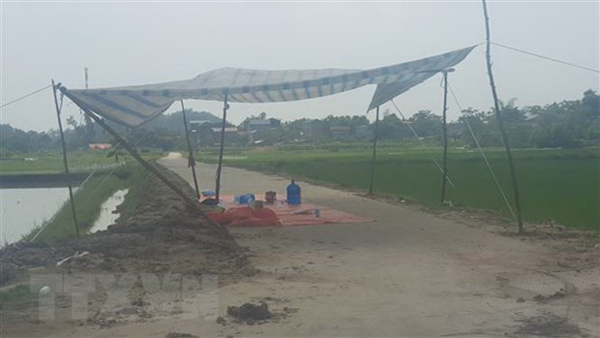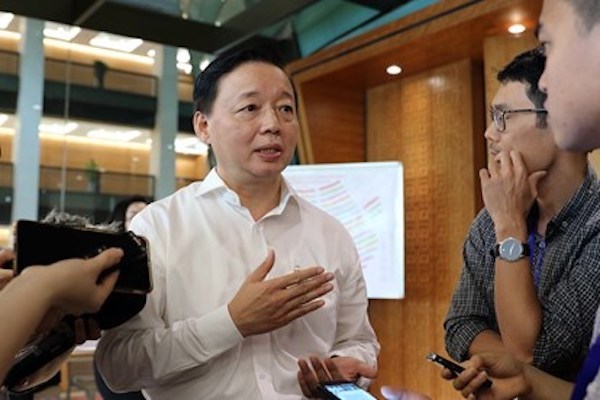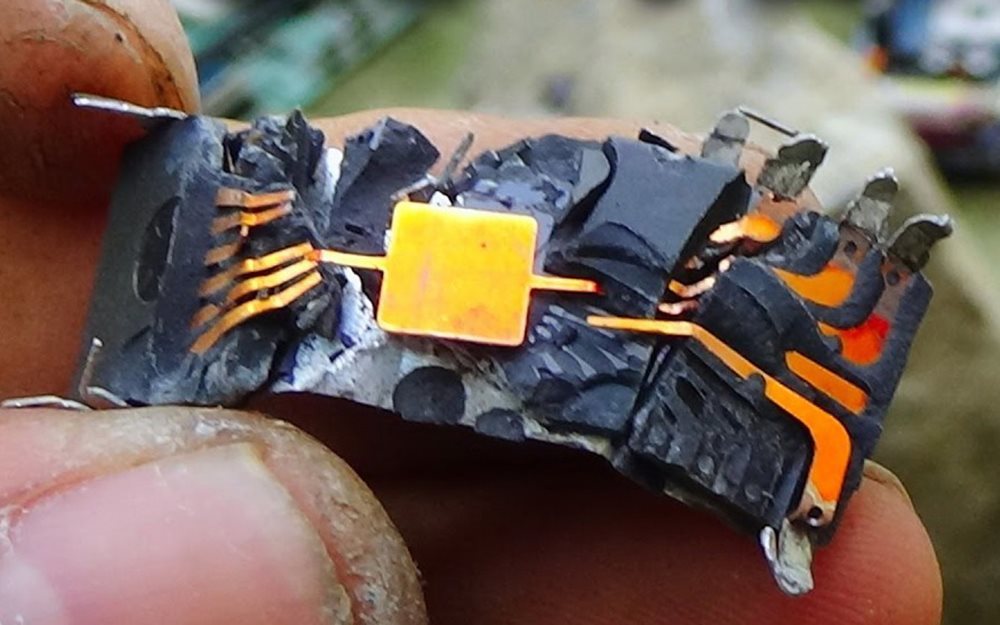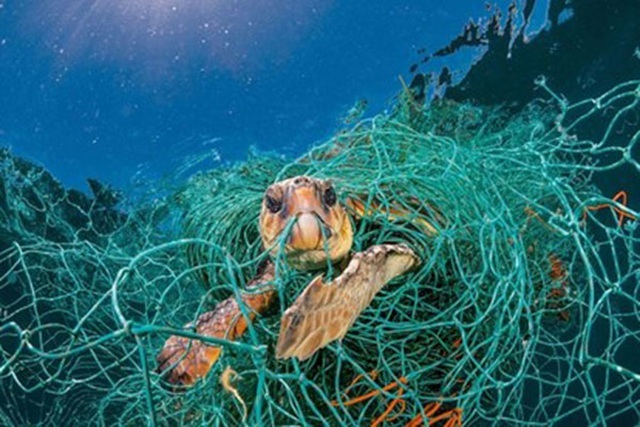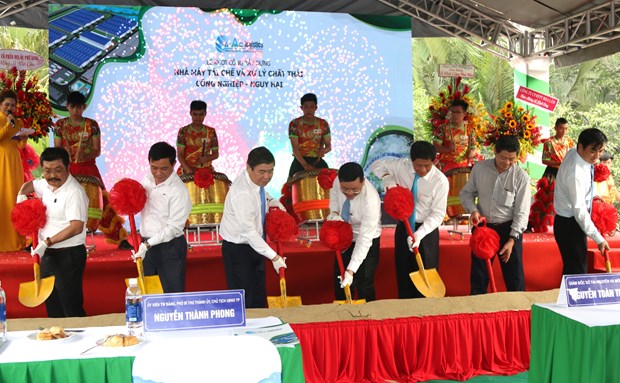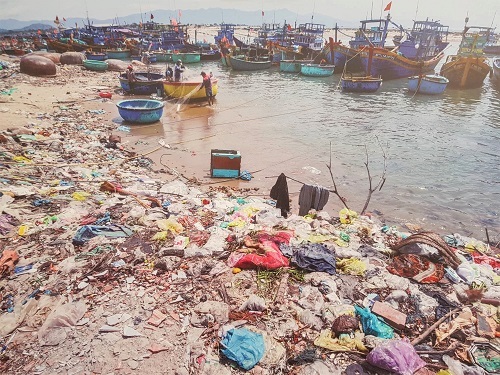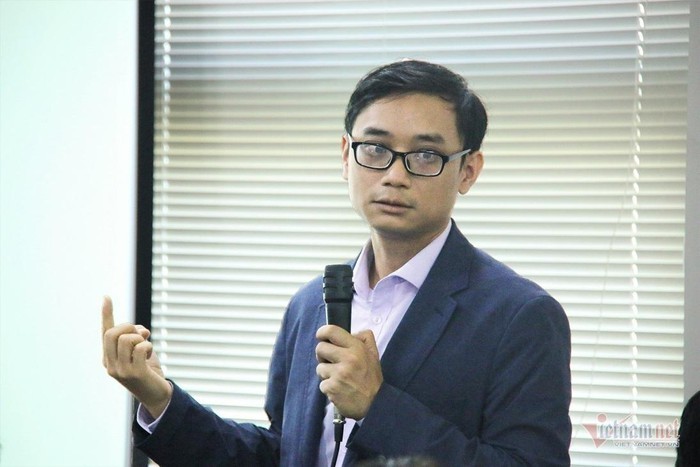- © Copyright of Vietnamnet Global.
- Tel: 024 3772 7988 Fax: (024) 37722734
- Email: evnn@vietnamnet.vn
waste treatment
Update news waste treatment
Project to install 11,000 solar energy dustbins underway in Hanoi
Hanoi is carrying out a project to install around 11,000 solar energy dustbins across the city, aiming to help protect the environment.
Hanoi faces a ‘waste crisis’
 Landfills in Hanoi have become overloaded as progress on waste treatment projects continues slowly.
Landfills in Hanoi have become overloaded as progress on waste treatment projects continues slowly.
.
Untreated solid waste illegally buried and burned
 Police in the southern province of Dong Nai have found tonnes of untreated solid waste illegally buried and burned at a wooden furniture factory in Bau Xeo Industrial Zone in the province’s Trang Bom District.
Police in the southern province of Dong Nai have found tonnes of untreated solid waste illegally buried and burned at a wooden furniture factory in Bau Xeo Industrial Zone in the province’s Trang Bom District.
Hanoi faces rubbish pile-up following compensation dispute
Rubbish has piled up on Hanoi streets after local people living near a local dumping site gathered to block trucks from entering the waste treatment complex.
Crowd blocks way to Nam Son landfill for land clearance and compensation
 A crowd of 15-20 people in two communes of Nam Son and Hong Ki in Hanoi’s Soc Son District on Monday night made makeshift tents, blocking the way to the Nam Son Waste Treatment Complex or Nam Son dumping ground.
A crowd of 15-20 people in two communes of Nam Son and Hong Ki in Hanoi’s Soc Son District on Monday night made makeshift tents, blocking the way to the Nam Son Waste Treatment Complex or Nam Son dumping ground.
Vietnamese Govt considers fee for domestic waste treatment by volume
 If the draft law is approved, people will pay a waste collection and treatment fee based on the amount of waste they produce.
If the draft law is approved, people will pay a waste collection and treatment fee based on the amount of waste they produce.
Finding gold in computer, smartphone waste
 Scientists say exploiting gold mines is not the only way to obtain gold. The source with the most potential is electronic waste. For every ton of smartphone waste, there are 350 grams of gold.
Scientists say exploiting gold mines is not the only way to obtain gold. The source with the most potential is electronic waste. For every ton of smartphone waste, there are 350 grams of gold.
Policies needed to encourage investment in waste-to-energy
 Vietnam needed to develop policies to encourage investments in waste-to-energy, also called bioenergy, which would significantly contribute to protecting the environment, experts have said.
Vietnam needed to develop policies to encourage investments in waste-to-energy, also called bioenergy, which would significantly contribute to protecting the environment, experts have said.
Developing tourism while protecting the environment is difficult task for Vietnam
 Experts warn that Vietnam’s tourism may lose its appeal in the eyes of foreign travelers because of environmental degradation in the country.
Experts warn that Vietnam’s tourism may lose its appeal in the eyes of foreign travelers because of environmental degradation in the country.
New regulations on rubbish disposal to be tightened
 Households who discharge more waste will have to pay more according to an amended Law on Environmental Protection.
Households who discharge more waste will have to pay more according to an amended Law on Environmental Protection.
Reuse and reduction are solutions to plastic waste: scientists
 Treating plastic waste, including ocean plastic waste, is a burning issue for Vietnam.
Treating plastic waste, including ocean plastic waste, is a burning issue for Vietnam.
Survey finds public lacks knowledge about pollution levels
 Contrary to the perception that the community ‘is shouting for help’, many people are not complaining much about pollution, while business households are indifferent to the problem.
Contrary to the perception that the community ‘is shouting for help’, many people are not complaining much about pollution, while business households are indifferent to the problem.
Vietnamese per capita plastic usage was 41 kilos in 2019
 Vietnam discharges 0.28-0.73 million tons of plastic waste to the ocean each year, or 6 percent of the world’s total figure, ranking fourth among the countries polluting the ocean the most, a study shows.
Vietnam discharges 0.28-0.73 million tons of plastic waste to the ocean each year, or 6 percent of the world’s total figure, ranking fourth among the countries polluting the ocean the most, a study shows.
Student raises flies to treat garbage
 ‘Hoa ruoi’ (Hoa fly) and ‘Hoa linh den’ (Hoa Black Soldier Fly) are the nicknames given to Nguyen Trong Hoa by his friends. The student raises flies to treat waste.
‘Hoa ruoi’ (Hoa fly) and ‘Hoa linh den’ (Hoa Black Soldier Fly) are the nicknames given to Nguyen Trong Hoa by his friends. The student raises flies to treat waste.
Vietnam to start plastic waste reduction action plan
 Vietnamese authorities have started many plans and programmes in order to reduce ocean plastic waste.
Vietnamese authorities have started many plans and programmes in order to reduce ocean plastic waste.
HCM City begins work on first hazardous waste treatment plant
 Ho Chi Minh City started work on its first industrial and hazardous waste treatment and recycling plant in Binh Chanh district on December 20.
Ho Chi Minh City started work on its first industrial and hazardous waste treatment and recycling plant in Binh Chanh district on December 20.
Vietnam needs reasonable policies to develop WTE technology
 It requires huge investment capital to build waste-to-electricity (WTE) plants with high technologies. Meanwhile, enterprises are meeting many barriers, especially in policies.
It requires huge investment capital to build waste-to-electricity (WTE) plants with high technologies. Meanwhile, enterprises are meeting many barriers, especially in policies.
Tourist sites in Vietnam will be plastic waste free
 Vietnam's Prime Minister Nguyen Xuan Phuc has issued a national action plan on ocean plastic waste management by 2030.
Vietnam's Prime Minister Nguyen Xuan Phuc has issued a national action plan on ocean plastic waste management by 2030.
HCM City faces rubbish collecting difficulties
 HCM City is facing difficulties collecting over 9,000 tonnes of domestic rubbish every day.
HCM City is facing difficulties collecting over 9,000 tonnes of domestic rubbish every day.
Vietnam consumes 938 million plastic bags weekly: survey
 The principle that waste is a kind of resource that can be used should be included in an amendment in the Law on Environmental Protection if Vietnam wants to minimize plastic waste.
The principle that waste is a kind of resource that can be used should be included in an amendment in the Law on Environmental Protection if Vietnam wants to minimize plastic waste.

